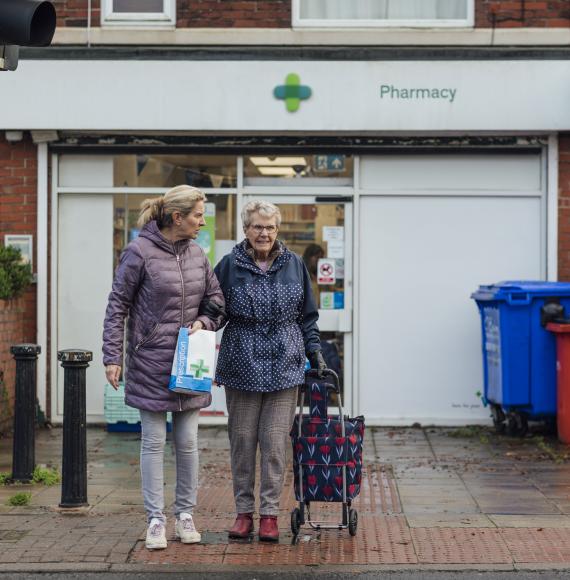Good hospital discharge matters not only to help patients get home quickly and safely; it matters for the wider health and care system too. If hospitals can’t discharge patients promptly, it affects their ability to move people through services. With long hospital stays significantly up on last year, it’s perhaps unsurprising that emergency care is currently under such stress: in February, an average of 585 patients a day in England were delayed over 12 hours in A&E while waiting for a hospital bed. If surges in demand put pressure on beds, planned treatments can get cancelled too.
A decade ago, a team at Sheffield Teaching Hospitals working on a Health Foundation funded project to improve patient flow, created the concept of Discharge to Assess (D2A). This flipped the traditional discharge model on its head, seeking to get people home as soon as they no longer needed hospital care and then assessing their support needs at home. The team found this not only reduced length of stay (with no change in readmissions) but also improved the quality of assessment, by seeing patients in the environment in which they would be living.
Since then, other communities have followed in developing their own models of D2A, and it has been promoted as good practice by NHS England since 2016. In 2020, as part of an effort to ensure hospitals weren’t overwhelmed during the pandemic, NHS guidance set the expectation that D2A should become the default process for hospital discharge – supported by extra funding to help cover the costs of post-discharge services.
While this national focus on discharge is welcome, it’s important new discharge models are implemented safely and in ways that maximise the benefits to patients and services originally envisaged by the D2A approach. One 2020 study revealed worrying problems with how new discharge arrangements were working during the first wave of the pandemic, with many people who reported having unmet needs in the community saying they didn’t receive a home assessment following discharge.
Health Foundation research with teams implementing D2A has highlighted some important lessons for doing it well. Successful cooperation across the NHS, social care and the voluntary sector is critical – including strong relationships and trust between colleagues across different sectors, and a shared understanding of the problems of delayed discharge and the benefits that successful discharge can yield. Teams also need space and flexibility to design, test and develop D2A models that meet their local needs. And it’s been apparent that efficiency gains from D2A have been part and parcel of wider improvements in quality, driven by the motivation of frontline teams to improve patient care. So, focussing on the wider quality benefits matters.
To do this, however, D2A needs proper resourcing – in particular, to ensure that the relevant support is available to people once they’ve been discharged. But the question of funding is currently contentious. During the pandemic, extra funding was made available to support discharge – something health and care leaders have cited as critical in enabling the expansion of D2A. However, the most recent NHS planning guidance confirms this funding will stop at the end of March, despite previous calls by the NHS Confederation and NHS Providers to make it permanent. In this context, there are real concerns that pressures in social care and community services will lead to people being discharged from hospital without the necessary support in place. There are also concerns – echoed at March’s NHS Board meeting – about the potential knock-on consequences on the wider system.
All this makes it important that integrated care systems now develop plans to further support D2A and work with providers to embed and improve new discharge models. The growth of virtual wards and ‘hospital at home’ models of care could be one part of the solution: as well as being an alternative to hospital admission, virtual wards can enable supported discharge. NHS England clearly sees virtual wards as a key part of the plan for NHS recovery, with up to £200m being made available in 2022/23 to support their expansion. But while this funding might go some way towards compensating for the withdrawal of dedicated D2A support, it seems unlikely to be enough to plug the gap (the national discharge fund amounted to some £490m from October 2021 to March 2022).
Ultimately, it’s incumbent upon the Government and system leaders to ensure services have the funding they need to secure the future of D2A. That includes investing in community services and social care, on which good hospital discharge depends. A failure to do so risks undermining the resilience of the acute sector – and with it, disrupting wider recovery objectives, like reducing the waiting list backlog.
The Health Foundation has today published a blog exploring this issue further.



















